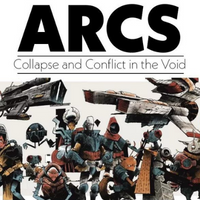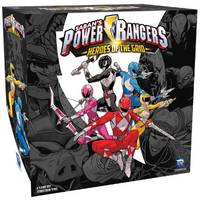27 September 2022
|
Mechanically deep, thematically grand, materially tiny
Fans of Phil Eklund know that he’s not one to embrace the light and breezy side of game design, and perhaps this is even more evident when beholding Pax: Emancipation. This grand game in its trademark tiny box attempts to gamify the global struggle for freedom led by abolitionists between the years 1776 and 1917 – and mostly, it succeeds.
Pax: Emancipation is a semi-cooperative game for up to three players assuming the roles of parliament, evangelicals, and philanthropists. The antagonistic core players must defeat is the grim conglomerate of slavers, anarchy, pogroms, and stubbornly entrenched political barriers and laws. To do so will require the slow and coordinated worker-placement style installation of agents – on both the map and on a market display of idea cards – to launch acts of westernisation, suffrage, and aggressive military diplomacy, whilst bringing to life new ideas within the bill of rights and laying the seeds for revolution.
Most of these acts add freedmen to the map, tear down barrier chits, and remove slavers – all of which are integral to overall victory and each players’ individual goals. The Evangelicals player, for example, receives no victory points if there are fewer than fifteen freedmen. But, as mentioned, this is a semi-cooperative game with an overall winner being mostly determined by majorities in either left or right wing barriers remaining on the map – a realistic and slightly depressing facet of the game that can in fact be avoided in the fully cooperative variant.
Given its historic and contemporary context, Pax packs an effective punch on a scale that eclipses co-op games such as Pandemic, yet it’s worth noting some similarities – even if it merely serves as a familiar framework for easing players into the game’s incredibly complex, intertwined systems.
Like Pandemic, Pax’s action unfolds across a global map board, represented here with cards. Over time, locations can become populated with black discs conveying anarchy, spawned by a mixture of luck and the activities of players in particular regions. Much like a virus, anarchy spreads, leaking across continents in the form of refugees and provoking a chain reaction of chaos and intense problem solving. If the anarchy discs run out players lose immediately –an outcome rendered even less desirable when considering that discs held by players act as points.
Beyond these aforementioned similarities, Pax is an unashamedly complex beast – and rightfully so given its theme – but consequently its accessibility suffers. Much of the gameplay relies on easy to miss prerequisites, interlocking systems, and regular dipping in and out of the rulebook(s), and as such is not a game courting universal appeal. The rulebook, in fact, is particularly unintuitive. Whilst I’m not unfamiliar with the verbosity prevalent in academia, Eklund’s approach to footnotes combined with often confusing streams of rules, do make for a difficult read. For some this attention to contextual detail is a draw, but, as is often the case, niche products do have to make peace with a heightened barrier of entry.
It’s also worth remembering that, even when dealing with historical events, games are still authored texts, and in the case of Pax, Eklund’s footnotes come with the biases one might expect from a product lacking any explicitly diverse racial and cultural input. The game itself though largely gives agency to the players, allowing them to pursue idealistic or at least interesting routes to victory. Of course this may not always go to plan: in one play-through – in pursuit of a few easy points – I spent the last turns shuttling marines around the board stamping out anarchy and generally tidying up. We got the victory but my rashness sure tasted sour, ethically speaking.
CHAD WILKINSON
PLAY IT? YES
An involved delve into an important part of history; Pax: Emancipation manages to use mechanical complexity as a means to convey even more complex ideas, whilst (mostly) avoiding devolving into a confusing mess.
TRY THIS IF YOU LIKED PAX PAMIR
An essential game for fans of Eklund’s Pax series.
Designer: Phil Eklund
Publisher: Sierra Madre Games
Time: 2-3 Hours
Players: 1-3
Age: 14+
Price: £35
What’s in the box?
- 3 Finance Boards
- 120 Cards
- 48 Cardboard Counters
- 45 Agents
- 48 Meeples
- Elephant Token
- 9 Purple Ship Tokens
- 21 Disks
- 4 Dice
- 3 Cubes
Looking for more?

This review came from Tabletop Gaming Magazine, which is home to all of the latest and greatest tabletop goodness. Whether you're a board gamer, card gamer, wargamer, RPG player or all of the above, find your copy here.
Get your magazine hereRead More...

If you want to read more about one of the most hotly anticipated games of the year, check out our interview with Cole Wehrle on ARCS! A new game from the designer of Root and Oath, and we've got all you need to know.
To infinity and beyond
Join us in person

We can't wait for Tabletop Gaming Live 2022! An epic weekend in Manchester full of board games, card games, roleplaying games, wargames and more, with amazing exhibitors, great games, and an opportunity to game together in person.
See you there!Treat Yourself!

Have you visited our game store? We have everything from mystery boxes, to games and accessories – including the above Power Rangers: Heroes of the Grid, with a great discount! Head over to find your new favourite game.
Visit the Game Store
Sometimes we may include links to online retailers, from which we might receive a commission if you make a purchase. Affiliate links do not influence editorial coverage and will only be used when covering relevant products







